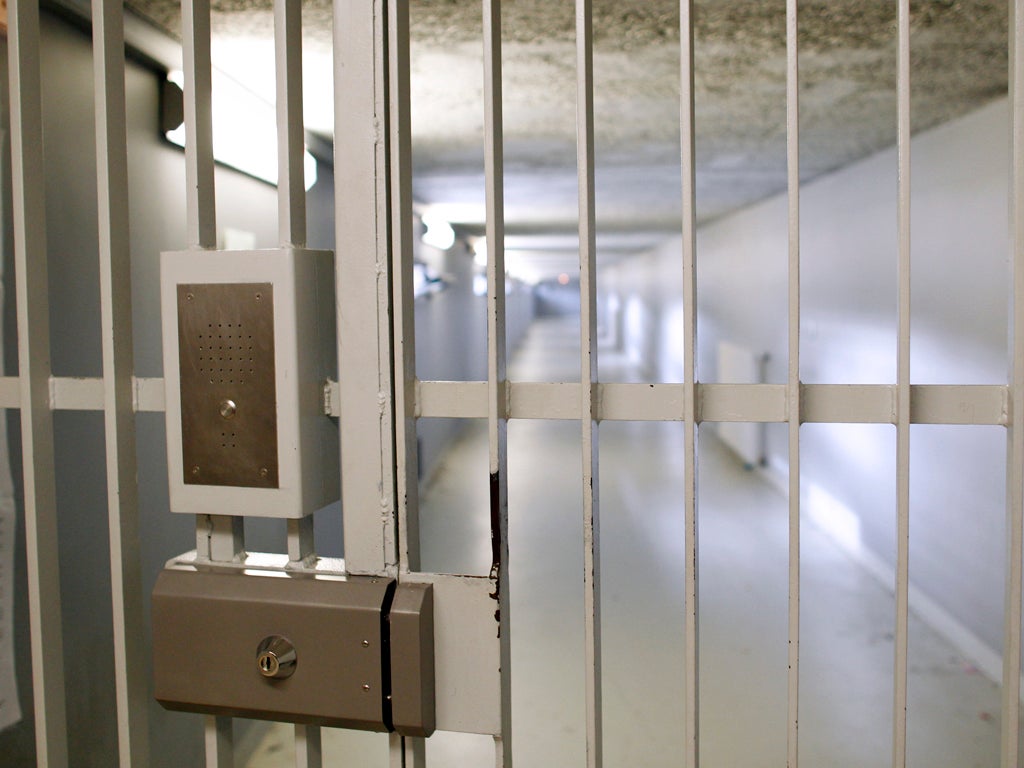Prisons aren’t the right place for people with mental illness. We must find another way
Despite overwhelming evidence there is still continuing reluctance from politicians to accept just how useless short prison sentences are

Your support helps us to tell the story
From reproductive rights to climate change to Big Tech, The Independent is on the ground when the story is developing. Whether it's investigating the financials of Elon Musk's pro-Trump PAC or producing our latest documentary, 'The A Word', which shines a light on the American women fighting for reproductive rights, we know how important it is to parse out the facts from the messaging.
At such a critical moment in US history, we need reporters on the ground. Your donation allows us to keep sending journalists to speak to both sides of the story.
The Independent is trusted by Americans across the entire political spectrum. And unlike many other quality news outlets, we choose not to lock Americans out of our reporting and analysis with paywalls. We believe quality journalism should be available to everyone, paid for by those who can afford it.
Your support makes all the difference.It’s four years today since the Bradley report exposed just how ineffective the criminal justice system is when it comes to dealing with people who have mental health problems and learning disabilities.
Its publication marked a seminal moment in public policy. It brought attention to the fact that our prisons are full of people with mental health problems and other issues, trapped in a cycle of offending because we are failing to address the underlying causes of their behaviour.
After listening to a broad range of views including the police, prison staff, charities and offenders themselves, Lord Bradley set out a compelling vision for change.
His report received support from across the political spectrum and polling at the time by the Prison Reform Trust showed it had strong support from the public too. According to their research, 80% of people do no think prison is the right place for people with mental illness.
Despite the momentum created by the report, four years on, not a lot has changed. There have been some signs of progress such as a commitment to rolling out diversion and liaison teams, which help ensure people with mental illness are given a more appropriate sentence than a short spell behind bars, but it’s not enough.
I have real concerns over the Government’s lack of ambition on this issue. They appear to be tinkering around the edges of the system, rather than bringing in the wide-ranging reforms we need if we want to see real change.
There is still continuing reluctance from politicians to accept just how useless short prison sentences are, despite overwhelming evidence. For people with mental health problems they are worse than useless. Too short to provide any kind of support but long enough to disrupt all the things you need to stay well such as stable housing, work or benefits. When reoffending rates for short sentences are as high as 60% it is surely impossible to claim that prison works.
If we’re really serious about reducing the prison population, ineffective short sentences must be swapped for effective community sentences. For people with mental health problems this could include a requirement that they engage with treatment, to ensure offenders got access to crucial help.
As other campaigners such as Make Justice Work have clearly demonstrated, there is a strong economic argument for community sentences and we need to stop seeing them as a ‘soft option’. For many, another short spell in prison is much easier than being required to address their behaviour as part of a community sentence.
Another stumbling block is austerity. If we want to see real change, we need to be prepared to invest in the short term in order to make long-term savings. We need to develop better community sentences that magistrates trust and will therefore use.
There is a particular gap in the system when it comes to people who have mental health problems which aren’t severe enough to qualify them for treatment. Low level mental health problems can be hugely significant, especially when combined with drug addiction. It would be a tragedy to bring in diversion and liaison teams who have nothing to divert people like this to.
This is a major social justice issue we no longer afford to ignore. The costs to both ill and vulnerable people and to the public purse are far too high. Winston Churchill once said you can judge a whole society by it’s attitudes towards offenders. Using this measure we are failing miserably.
Join our commenting forum
Join thought-provoking conversations, follow other Independent readers and see their replies
Comments